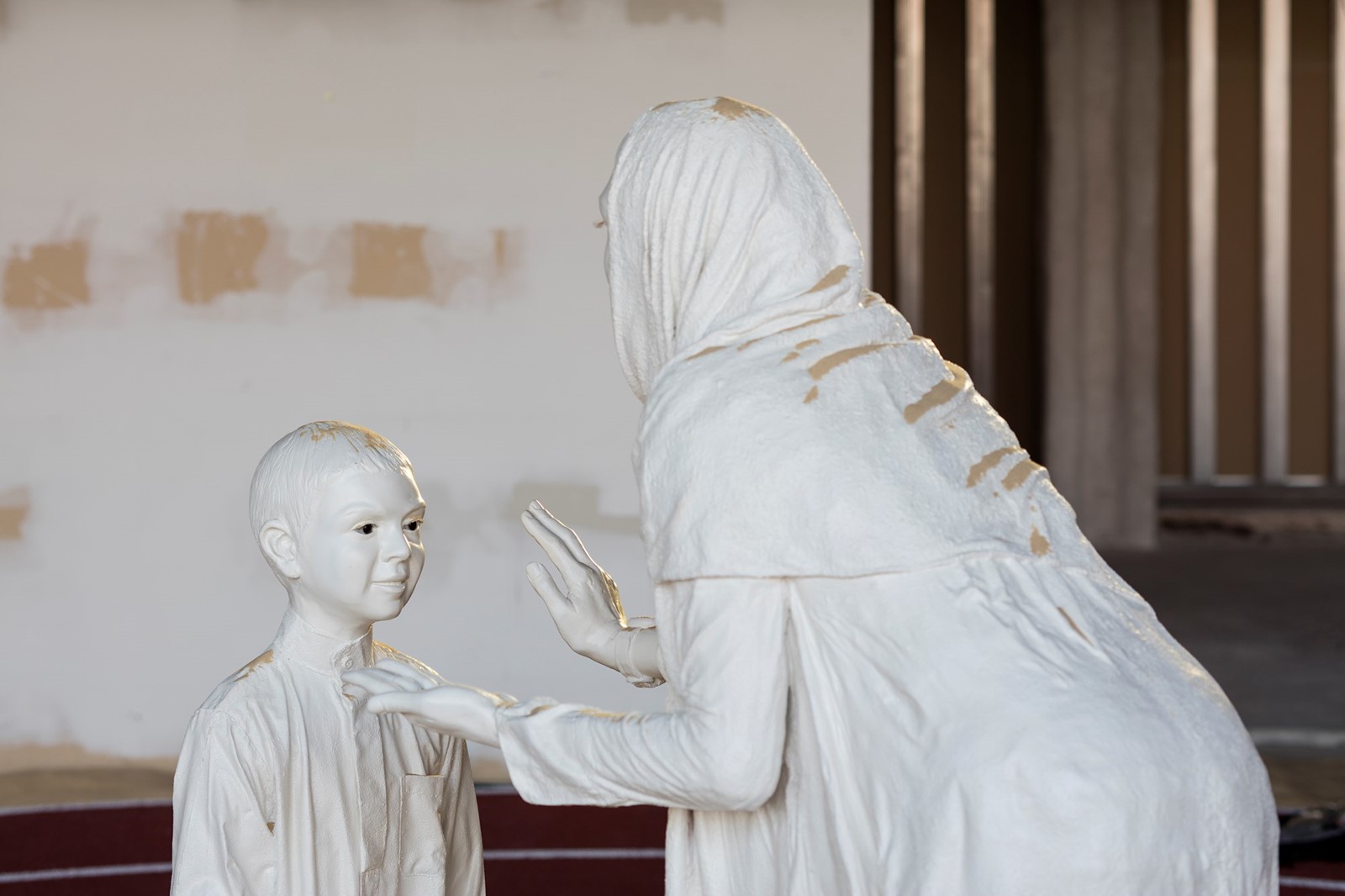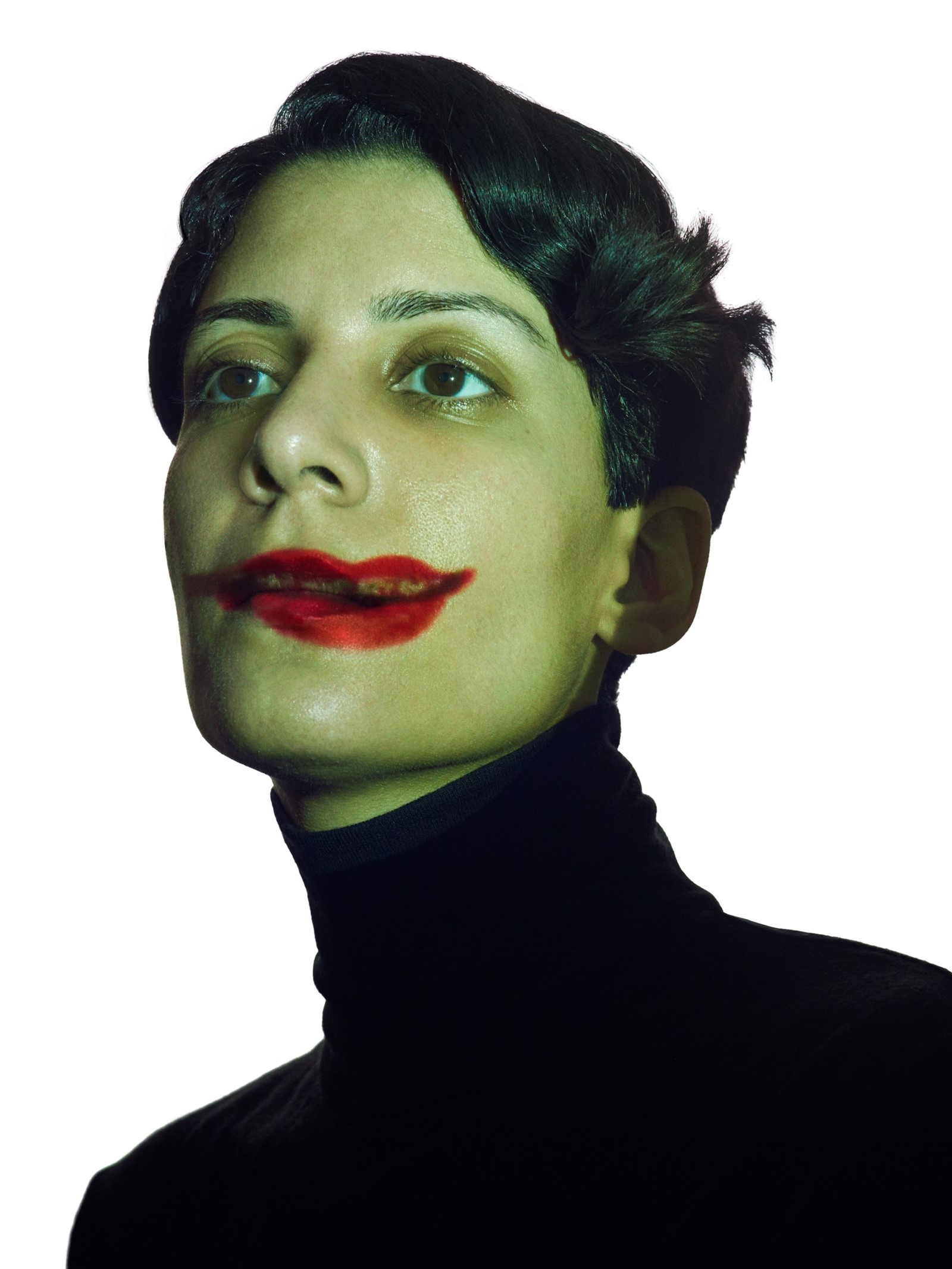Very appropriate!” laughs Fatima Al-Qadiri from Berlin as police sirens punctuate our conversation. The Senegal-born, Kuwait-raised, occasional American resident released her second album, Brute, this spring. Visceral and thought-provoking, it is a tribute to those on the frontline of protests around the globe and explores ideas pertaining to authority, the facade of democracy in a neoliberal age, and relationships of power between the police and civilians with particular focus on America.
Al-Qadiri’s tracks grow increasingly pertinent with each vile deed that yanks at the frayed seams of our social tapestry. Here, Brute matched the precarious national mood in its dislocated, ominous sound. Meanwhile across the Atlantic, Americans are reeling following a cortège of calamities – namely two more black men, Philando Castile and Alton Sterling, killed by police officers – the ensuing uproar and protests, with the Dallas march culminating in the shooting of five policeman by an ex-military man, in turn dispatched by a weaponised robot. Well, one can see why a record that opens with the sound of an officer dispersing a crowd protesting the fatal shooting of Michael Brown in Ferguson, as well as the demise of other black people at the hands of the law via a Long Range Acoustic Device (LRAD), might seem like an appropriate listen.

Al-Qadiri grew up in Kuwait during the first Gulf War. As the oil fields burned, she and her sister Monira relished the cognitive sanctuary provided by international TV programmes and video games. In the background, Arab radio stations and classical European compositions filled their home as gunshots and bombs scorched the air outside. Al-Qadiri never ceased to seek inspiration from far-flung places, whether real, augmented or imagined. Her debut LP, Asiatisch, was themed upon Western ideas of China, and the underlying power struggles intrinsic to the stereotyping and othering of foreign populaces and states. It features tender choral segments, distorted recordings of Chinese poets, westernised Chinese musical motifs and snatches of grime among various other electronic styles. Last year, the deservedly hyped, Warp-signed supergroup Future Brown – composed of Al-Qadiri, LA duo, Nguzunguzu, (Asma Maroof and Daniel Pineda) and Lit City Trax label boss and artist, J Cush – released an intoxicating, progressive eponymous LP.
As well as making music to expose to blinkered thinking, Al-Qadiri founded visual arts collective GCC, along with Monira and seven other Gulf-based artists. Named after the English abbreviation for the Gulf Cooperation Council (a political and economic union of Gulf states), the multidisciplinary group examines the machinations of and theories abounding within contemporary societies in the region, and how these are projected through diplomatic, bureaucratic and cultural relations. The collective has won widespread praise for their installations such as Positive Pathways (+), 2016, shown at Berlin Biennale [imagery above], which co-opt diplomatic tropes and repurpose signifiers of wealth and influence in order to expose instabilities and inequalities.
Below, Al-Qadiri sheds light on the underpinnings of Brute and her views on the state of that nation ahead of her upcoming appearance at NeoPop Festival in Portugal.
On musical storytelling…
"As a musician I grow like a tree, ring by ring. The evolution of my sound is a very slow process. With each record, there will be a step forward as far as the sonic quality is concerned, but I want to evolve gradually. I want to say a lot, but not change radically with each release, or alter who I am as a musician. Also, I don't know how to make music without telling a story, so I'm convinced that for the rest of my life (and/or career), every record will have one. It's almost like, I can't write novels, I wish I could write novels, but instead I write music."
On the militarisation of the US Police force…
"When people ask me about this record I’ve always said [protest and its containment] is a very old subject, but the militarisation of the police is a new one even in the 60s, when there were protests, the National Guard was there. The police forces’ methods of containing people: cannons, pepper spray and rubber bullets, have been used since the first protest I went to, which was against the IMF World Bank in 1999 in Washington DC. Today they have the LRAD. Its makers are the most disingenuous people on the planet, they're like, ‘Oh this is not a weapon.’ They put it in this fluffy, vague language of crowd dispersal, but if something can rupture your ear drums, I don't know how to classify it otherwise. They keep adding to their arsenal and I feel like we now have robocop upon us. In Baton Rouge, the police looked like cyborgs going after alien forces, not cops trying to deal with a peaceful protest. It looks like extreme warfare."
On the importance of protest and advocates to the Black Lives Matter movement…
"The problems are very, very deep and have to do with the foundation of the justice system and the way prisons are run and race relations in the country. There is this 'hear no evil, speak no evil, see no evil' attitude in the establishment. That is the core of white privilege: not experiencing racism and not fearing for your life when you're driving and realise you have a broken taillight and that you might get shot as you take out your license and registration. But you have to start somewhere and one of the most important things is to steer conversations in the right direction so I feel [encouraged by] all the protests and the fact that a lot of public figures have lent their voice to the movement. The more people in recreation and entertainment especially, which is the ultimate form of distraction, take part in it and lend their voices, not as a one-off gesture, but continuously, the better."
On the intrinsic racism of the American prison system and the “new slavery” …
"You can't compare the prison population in the USA to any other country in the world. There are more black people locked up there than at the heart of apartheid in South Africa. That fact alone sends chills down my spine. And there is so much profit being generated through it, not just with the for-profit prisons, which are contracted by the state, but also with some police being paid on commission for arrests – not to mention the prisoners making products for major retailers like Whole Foods that sold cheese made by prison labour for fuck knows how much money. It's like slavery didn't end but just got redesigned, repackaged and rebranded. Literally. This is free labour. The west became wealthy through slavery. The wealth of the first world wouldn't exist without it. One reason they're locking up black men for the pettiest of crimes, and sometimes less, is because they need that manpower to make billions in profits. It’s disgusting. That’s the biggest conversation not being had."
On the value of education to creating an equal society…
"Another thing is not being talked about is that racism is taught, it's a learned behaviour. Human beings are not born racist, it's a social behaviour that is passed down by peers, by family members, and this educational element is not being addressed either. The highest thing you can do for your nation is to provide free education and healthcare. These are the two bastions of a civilised society and once you strip them away, that's when you're easily going to be easily able to manipulate them with narratives of nationalism and tribalism. And I’m seeing what happened in the States happening in the UK now. The British government is dumbing down the public by making university financially prohibitive when all the MPs went to university for free."
On the media’s portrayal of the Black Lives Matter movement …
"I learnt the hard way that what was labelled the liberal media was not liberal. Beginning with the coverage of the invasion of Iraq in 2003, that's when my eyes were opened as far as the objectiveness of the BBC and so on. I had to come to terms with a lot of the things that I held true as a teenager, held as sacred, suddenly came crashing down then.
With some of the most important things happening now, the conversation is twisted. For instance what happened with the killer of the police in Dallas, where specific people in the conservative, racist media held on to the fact that he was black and decided to punish the Black Lives Matter movement by insisting that this is what happens, that you advocate against police brutality and suddenly you're killing police officers whereas nothing could be further from the truth. And it's just incredible how whenever a black person is slain by police you see articles about them coming up within that week saying how this person was the member of a gang, this person was a petty thief. The narrative is fucking crazy. Because you stole a candy bar you should die? It was okay that they murdered you? It's absolutely horrific."
On the role of journalism and social media …
"It’s obviously the job of writers and journalists to seize this moment, push forward as much content as possible about this subject and not let it go. I follow a lot of black writers, Ta-Nehisi Coates, for instance, who has been writing incredible articles for The Atlantic. But the way that we exist, with much of journalism partially native advertising, is fucking scary. It's what pays the bills, but then there's all this shit affecting the way that we cover subjects in the media, and this is where social media becomes important as then this subject is being pushed through by activists, not people motivated by paychecks. Today I saw a commentator, a Muslim writer, [discussing twitter] and he said, “I know that Muslims get a lot of hate on social media, but I didn't realise that once you tweet BLM your mentions are a mess for days.” And it's absolutely true. You tweet BLM and you're going to get a whole army of trolls upon you. I remember the first time I tweeted #BLM I got the most heinous statements, and they have not been rivalled since. It’s totally insane."
Brute by Fatima Al-Qadiri is available to download now, released by Hyperdub. NeoPop Festival takes place in Portugal from August 4th until August 6th, 2016.
